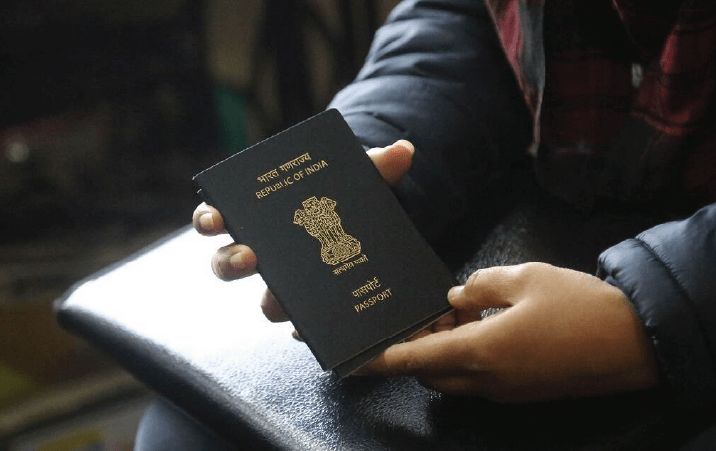Though US and the UK are issuing more visas to Indian students than Chinese aspirants, countries are taking too long to expedite visa processes, some students feel.
The Ministry of External Affairs (MEA) in June asked the ambassadors or deputy chiefs of missions in eight countries, including the US, the UK, Canada, Australia and Germany to “streamline” and “fast-track” the process.
Arjun Sasi, a marketing freelancer, had applied to the Masters in Business in Integrated Marketing Communications programme at the Queensland University of Technology in Brisbane, Australia. When he was given a confirmation of admission from the university, Sasi left his job and started putting together his documents to apply for a study visa.
“I submitted all my documents and got done with all the prescribed process and then I started waiting to hear back from the visa officers. Sadly, it took six months and didn’t give me the results I expected,” he told indianexpress.com. By the time they replied, Sasi realised he had not received the approval of the Australian authorities. Nor were the reasons known.
Another aspirant, Shreya Gupta, who applied for a UK study visa, had to wait for more than the expected waiting time. “I was told that it would take three weeks, but I had to wait more than a month. Thankfully, my visa was accepted, unlike a few other people I know who are still waiting for a reply,” she said. Gupta will now fly to the UK in September next year to pursue a Masters in Management (MSc Management) from University College London.
However, the British High Commission maintains that all study visas are being issued within three weeks. “While the number of Indian applicants applying for UK study visas is already high, almost all student visa applications are being processed within the service standard of three weeks. We recommend students continue to apply for visas as soon as possible to avoid any delays. We’ve also resumed priority visa and super-priority visa services for new student visa applications,” a British High Commission spokesperson
Gupta says that students suspect that the UK authorities are delaying some student visas so that other people directly apply for the priority- and super-priority visa services, which would bring the country more revenue.
Meanwhile, a WorldGrad survey found that over 80 per cent of undergraduate and 75 per cent of postgraduate students are willing to pursue overseas studies through a hybrid learning model. The number stood at 72 per cent six months ago and 55 per cent a year before.
Additionally, the proportion of undergraduate students weighing a hybrid learning option is highest among those considering Australia and the United Kingdom (86 per cent), who are more cost-conscious.
While 86 per cent undergraduate students expecting to start education in the next 3–12 months are more open to the online mode than those looking for the next academic cycle (75 per cent), postgraduates students wanting to start next year are more open to online classes (82 per cent) than those planning for the next academic cycle (68 per cent)— major reason being the apparent decrease in cost.
Late arrival welcome, but no discounts
Keeping this chaotic situation in mind, some universities such as the University of Birmingham, IE University, the University of Hull and Newcastle University have announced that students can arrive up to four weeks late to cover for longer visa timelines. These universities also allow international students to start courses in the online mode, as a temporary arrangement, but only in select situations. Such students have to reach the campus by the extended last dates; or else they are asked to wait for the next intake.
“Currently, the University of Hull has not made provision for students that do not obtain their visa on time to take classes online. We do have a small amount of leeway of three weeks from the start of teaching for students to enrol that are facing any problems coming to the UK. To support late-arriving students, they are given catch-up support from their tutors when they arrive,” said Emma Payne, international recruitment manager at the UK university.
Some universities are set against fee discounts for online classes. “At IE, all the programmes are hybrid, the students can attend face-to-face classes, or be connected online. The fee is the same, so there will not be a reimbursement,” said Pablo Sun Li from IE University in Segovia, Spain. “Full- time programme students can’t do online classes for their entire programme, but we offer flexibility in case their arrival is delayed.”
Thara S Namboothiri, from the Flyworld Migration and Legal Services, Australia, said, “What we are experiencing at the moment is the pre-Covid demand coming back to overseas migration and education. Australia has opened up to international students and skilled migration, and we are seeing a lot of applicants being granted visas for onshore courses. Medical, IT, and cybersecurity courses are seeing an increase in demand, and the trend has also shifted from metro cities to regional area universities where PR (permanent residency) pathway processes are much simpler.”
Some students say the process has been normal for them, even amid the post-pandemic rush and the Ukraine war chaos. Jincy Sabu, a nursing student, went to Australia towards the end of June for the July intake. “On submitting the necessary documents, IELTS test report, and payment of my first-semester fees, I was granted a confirmation of enrolment from my university. The visa process was pretty straightforward after that, and I received my visa-grant letter 15 days later. I was obviously anxious about the whole process since Covid made things much more complicated,” she told indianexpress.com.
According to the data collected for the WorldGrad Survey, Australia is a top destination for 32 per cent of undergraduate students. While employment opportunities are most crucial for 37 per cent of students, the country’s lower degree costs attract 27.5 per cent of students.
Courtesy : The Indian Express
